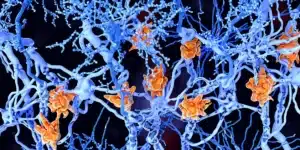Blog
Breaking Barriers: The Promising Role of Cannabis in Multiple Sclerosis Management and Disease Progression
Multiple sclerosis (MS) is a complex and chronic autoimmune disease that affects the central nervous system, causing a range of debilitating symptoms. While there is no cure for MS, researchers and patients are exploring alternative treatment options to manage symptoms and slow down disease progression. In recent years, cannabis has emerged as a potential therapeutic tool in MS management. This blog explores the promising role of cannabis in improving the quality of life for individuals with MS and shedding light on its potential to break barriers in disease management.
Unraveling the Mechanisms: How Cannabis Interacts with the Immune System

Cannabis and its active compounds, THC and CBD, have been found to have complex interactions with the immune system, which play a significant role in the potential therapeutic benefits of multiple sclerosis (MS). In this section, we explore the intricate relationship between cannabis and the immune system to gain a deeper understanding of how cannabis may modulate immune responses and alleviate MS symptoms.
Studies have shown that cannabinoids, such as THC and CBD, can interact with various components of the immune system, including immune cells and signaling molecules. Cannabinoid receptors, known as CB1 and CB2 receptors, are found in abundance within the immune system. CB1 receptors are primarily located in the central nervous system, while CB2 receptors are predominantly found in immune cells, including those involved in inflammation and immune response regulation.
When cannabis compounds interact with these receptors, they can influence immune cell activity and signaling pathways. THC, for example, has been shown to have immunosuppressive properties by reducing the production of pro-inflammatory cytokines and inhibiting immune cell activation. On the other hand, CBD has been found to have immunomodulatory effects, helping to regulate immune responses and promote a more balanced immune system function.
By modulating immune responses, cannabis compounds may help alleviate MS symptoms associated with inflammation and immune dysfunction. This includes reducing neuroinflammation, which is a key contributor to the damage and degeneration of nerve cells in MS. Additionally, cannabis compounds may influence the activation and migration of immune cells, potentially impacting the autoimmune response characteristic of MS.
It is important to note that the effects of cannabis on the immune system are complex and can vary depending on factors such as dosage, timing, and individual differences. Further research is needed to fully understand the specific mechanisms by which cannabis interacts with the immune system and how these interactions can be optimized for therapeutic purposes in MS management.
By unraveling the intricate relationship between cannabis and the immune system, we can gain valuable insights into how cannabis may modulate immune responses and provide potential relief for individuals with MS. This understanding lays the foundation for exploring the broader potential of cannabis-based therapies in alleviating MS symptoms and improving the quality of life for those living with this challenging condition.
Easing the Burden: Cannabis for Symptom Management in Multiple Sclerosis

Living with multiple sclerosis (MS) can be a daily challenge due to the diverse range of symptoms that individuals may experience. In this section, we focus on the potential of cannabis in easing the burden of these symptoms and improving the overall quality of life for people with MS. One of the most common symptoms is spasticity, which involves muscle stiffness and involuntary contractions. Cannabis has shown promise in reducing spasticity, with studies highlighting the benefits of cannabinoids like THC and CBD in relaxing muscles and improving mobility. Furthermore, neuropathic pain, often described as a burning or shooting sensation, can significantly impact the well-being of individuals with MS. Cannabis has been found to have analgesic properties, providing relief from neuropathic pain and enhancing daily functioning. Additionally, fatigue and depression are common among MS patients, affecting both physical and emotional well-being. Cannabis may offer potential benefits in managing fatigue and improving mood, promoting a sense of well-being and a more positive outlook. Through scientific research and personal anecdotes, we shed light on the positive impact of cannabis in alleviating the multifaceted symptoms of MS, providing hope and potential relief for individuals living with this complex condition.
Slowing the Progression: Cannabis as a Disease-Modifying Agent
Emerging research has sparked interest in the potential of cannabis as a disease-modifying agent in multiple sclerosis (MS). In this section, we explore the studies that have investigated the impact of cannabis on disease progression, shedding light on its ability to slow down neurodegeneration and reduce inflammation in the central nervous system. Neurodegeneration is a key characteristic of MS, leading to the accumulation of disability over time. Preliminary evidence suggests that cannabinoids found in cannabis, such as THC and CBD, may possess neuroprotective properties, helping to preserve nerve function and mitigate further damage. Additionally, cannabis has been found to modulate the immune response, potentially reducing inflammation, a hallmark feature of MS. However, it is important to note that debates and limitations exist regarding the long-term effects of cannabis in MS management. The optimal dosage, duration of treatment, and potential side effects are still areas of ongoing research and discussion. Individuals with MS must consult with their healthcare providers to make informed decisions about incorporating cannabis as part of their comprehensive treatment plan. While cannabis holds promise as a disease-modifying agent, further research is needed to fully understand its potential benefits and long-term implications in slowing the progression of MS.
Navigating the Landscape: Considerations and Challenges in Cannabis-Based Therapies
As the potential of cannabis in multiple sclerosis (MS) management gains recognition, it is crucial to address the considerations and challenges associated with its use. One important aspect to consider is the legal and regulatory landscape surrounding cannabis-based therapies. The legality of cannabis varies across different regions, and individuals with MS need to understand the laws and regulations in their specific jurisdiction. Additionally, healthcare professionals play a vital role in guiding patients through the process, providing accurate information, and ensuring compliance with local regulations.
Another consideration is the potential side effects of cannabis. While many individuals with MS experience symptom relief with cannabis, it is important to be aware of potential adverse effects. Common side effects may include dizziness, dry mouth, changes in appetite, and mood alterations. Understanding these potential side effects and discussing them with healthcare professionals can help individuals make informed decisions regarding their treatment options.
Drug interactions are another important consideration when incorporating cannabis into an MS treatment plan. Cannabis can interact with certain medications, including those commonly prescribed for MS symptom management. It is crucial to have open communication with healthcare professionals to ensure that cannabis use does not interfere with the effectiveness or safety of other medications being taken.
Open communication and collaboration between patients, healthcare professionals, and regulatory bodies are key in navigating the landscape of cannabis-based therapies for MS. Patients need to discuss their interest in cannabis with their healthcare team, sharing information about their symptoms, current treatments, and goals. This allows healthcare professionals to provide tailored advice, monitor the effects of cannabis, and ensure the overall well-being of the patient.
Regulatory bodies play a vital role in ensuring the safety and quality of cannabis products available in the market. By adhering to regulations and participating in research, regulatory bodies contribute to the establishment of evidence-based guidelines for the use of cannabis in MS management.
By addressing the considerations and challenges associated with cannabis-based therapies, individuals with MS can make informed decisions about incorporating cannabis into their treatment plan. Open communication, adherence to regulations, and ongoing monitoring of effects are essential in maximizing the potential benefits while minimizing potential risks. As research and understanding in this field continue to evolve, it is important to maintain a balanced perspective, focusing on the individual needs and goals of each person with MS.
Cannabis in Multiple Sclerosis Management
The potential of cannabis in multiple sclerosis management represents a significant breakthrough in the field of neurology. As research continues to unfold, it is important to have open discussions, address the limitations, and ensure responsible use. While cannabis shows promise in alleviating symptoms and potentially slowing disease progression, it should be viewed as part of a comprehensive treatment plan that includes medical supervision, lifestyle modifications, and other evidence-based therapies. By embracing this multifaceted approach, we can strive to break barriers and improve the lives of individuals living with multiple sclerosis.


